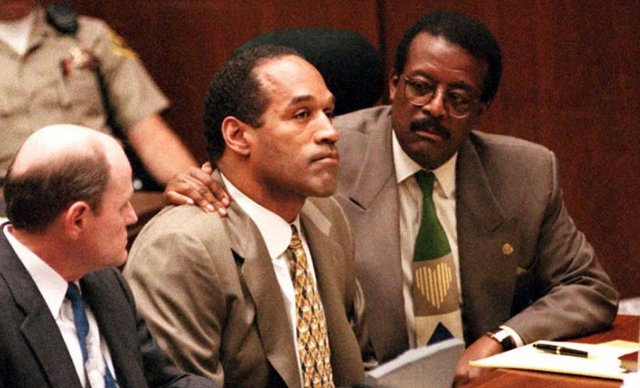It happened on this day - 12th Jan in 1995
On this day, 12th January in the year 1995, one of the most notorious trials in US legal history began, as former sportsman and actor OJ Simpson took the stand accused of murder.
The O.J. Simpson trial, often referred to as "The Trial of the Century," captivated the nation in the mid-1990s. It began after the brutal murders of Nicole Brown Simpson, O.J.’s ex-wife, and her friend Ron Goldman on June 12, 1994. Evidence quickly pointed to Simpson, a former NFL star and actor, as a suspect. What followed was a dramatic televised police chase on June 17, 1994, with Simpson in a white Ford Bronco, which ended in his arrest. The spectacle of the chase and Simpson’s celebrity status ensured the case would become a cultural phenomenon.
The trial officially began in January 1995 and lasted for over eight months. The prosecution, led by Marcia Clark and Christopher Darden, presented a case based on DNA evidence, a history of domestic violence, and the infamous bloody glove. However, the defense team, famously dubbed the "Dream Team" and led by Johnnie Cochran and Robert Shapiro, focused on undermining the credibility of the evidence and suggesting police misconduct and racial bias. Cochran’s memorable line, “If it doesn’t fit, you must acquit,” referring to the glove, became a key moment. The trial highlighted deep racial and societal divisions in the United States, with many seeing the case as a referendum on issues of race, class, and justice.
On October 3, 1995, after just four hours of deliberation, the jury found O.J. Simpson not guilty of the murders. The verdict sparked widespread reactions, with celebrations in some communities and outrage in others, reflecting the racial tensions and differing perceptions of the case. While Simpson was acquitted in the criminal trial, he was later found liable for the deaths in a 1997 civil trial and ordered to pay significant damages. The trial remains one of the most polarizing and analyzed legal cases in American history, leaving a lasting legacy in both the legal system and popular culture.


